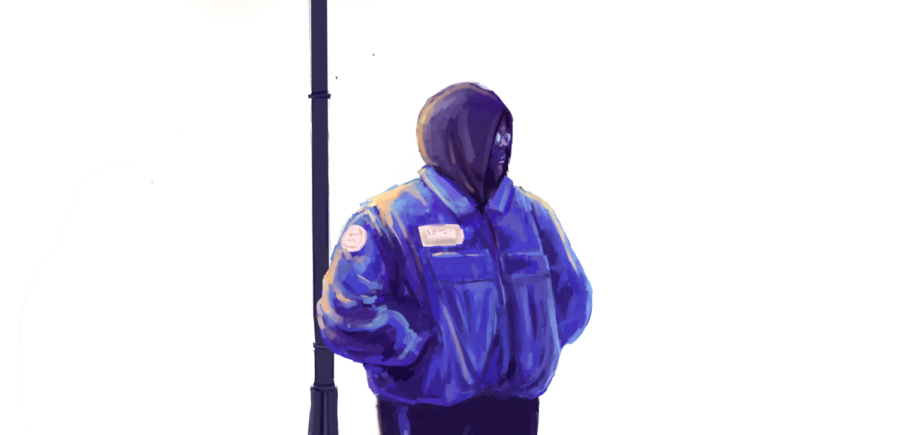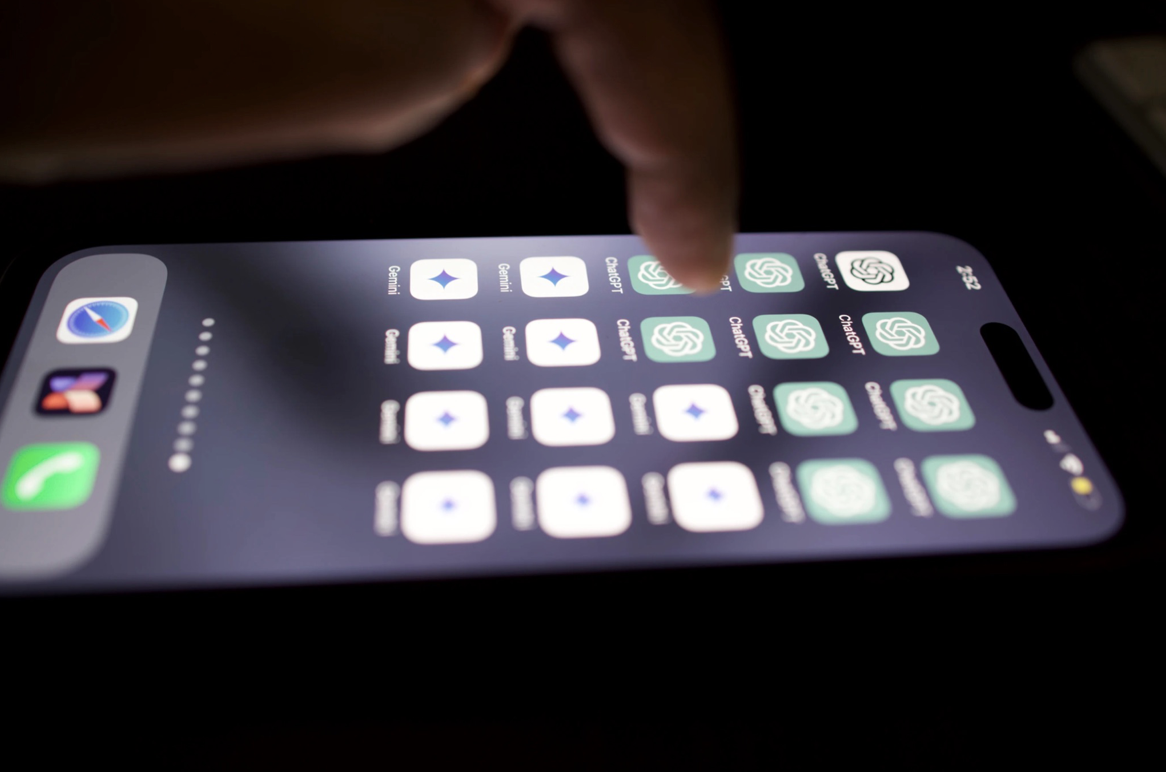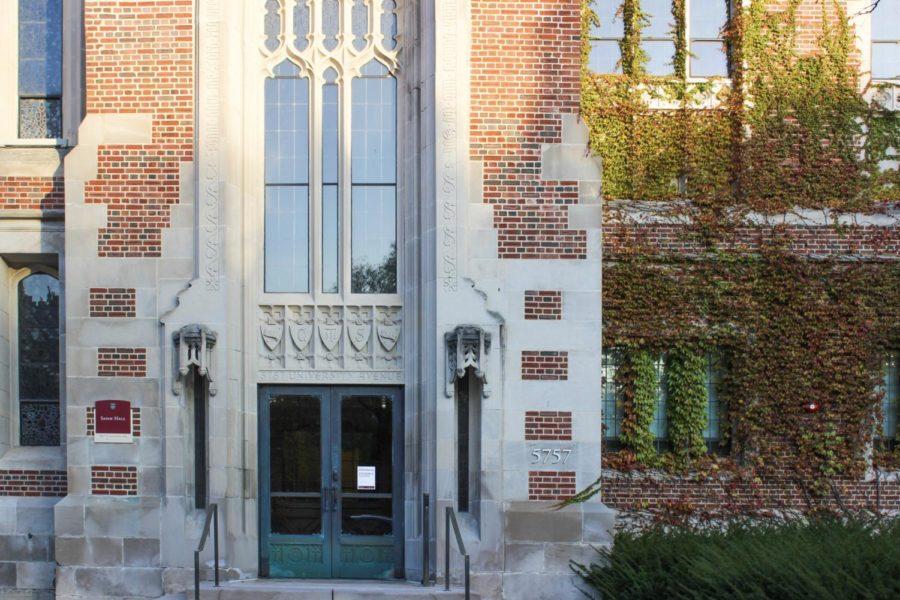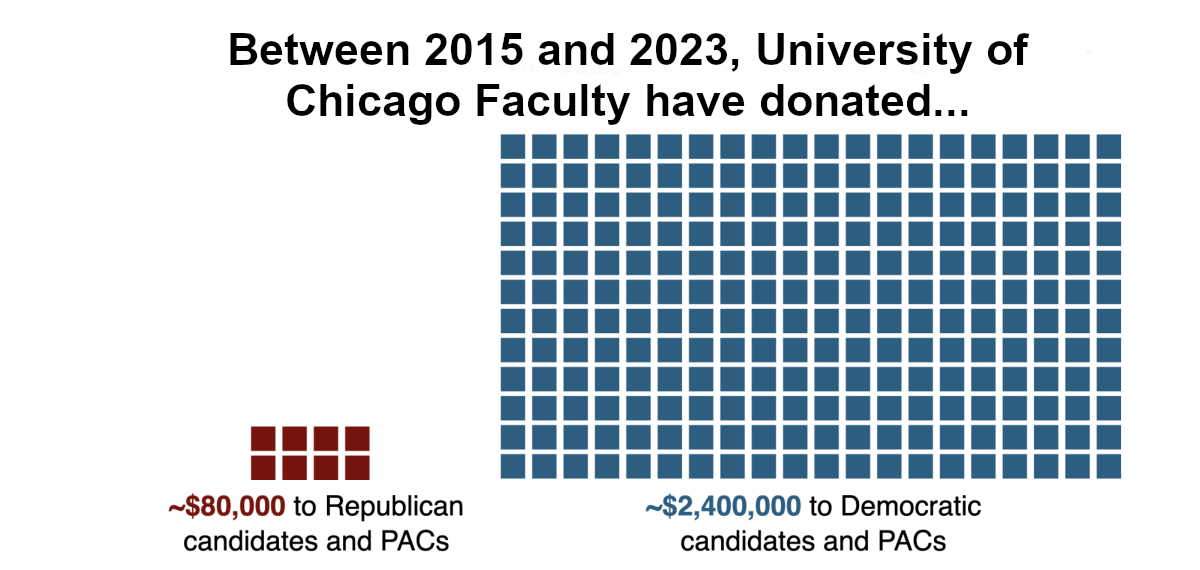Editor’s Note: Before you read this article, I believe it is important to disclose to you how the writers came upon this story and the challenges they faced reporting it. In 2014, Sindhu, one of the writers, started an organization called One Campus whose mission is to create events for students and non-academic staff. Through this, she got to know many Allied Universal officers and, during conversations with them, heard the same grievances come up repeatedly. They decided to investigate what was going on, but from the beginning and throughout this past year of reporting, they have had a hard time getting officers to feel safe talking on the record even when offered anonymity. They have also struggled to get the perspective of Allied Universal management and SEIU Local 1 (the union) as their interview requests have either been rejected or pushed to media relations staff who have been unable to answer their core questions. Despite the silences from key players in their security system, they decided to present what they were able to collect in the following article.
***
Conditions
“It’s more of a mental thing to actually stand out here. Especially when you got kids like me. You really have to talk to yourself…because you are thinking about your bills; you are thinking about all the things your kids need. So, it’s like, ‘Stick it out,’” Anna said.
At the time, Anna worked at the University of Chicago as a security guard. For four days each week, she stood outdoors for 10 hours, from 4 p.m. to 2 a.m., watching over her block of Hyde Park. Most Allied Universal personnel work this shift, which includes a 40-minute lunch and two 20-minute breaks.
According to the officers with whom we spoke, wages range from $10.50 to $13 per hour.
Allied Universal has grown significantly since the University first enlisted security services in 2009. In the beginning, security guards on campus were scarce, with a person every four blocks or so. Seven years later, security guards stand at nearly every street corner on and around campus to act as crime deterrents. Increases in security personnel are still happening: In an e-mail statement in July of this year, President Robert Zimmer noted that the University has increased the number of security officers along University properties on 53rd Street and Harper Court in particular.
Zimmer credited the 60 percent decrease in on-campus robberies and 19 percent reduction in violent crimes within the University of Chicago Police Department (UCPD) patrol area since 2009 in part to this increase in security presence. University spokesperson Marielle Sainvilus pointed to the same trend, though she acknowledges that it is difficult to identify trends in the number of violent crime incidents on campus, in part because the number is relatively low. According to her, the 11 incidents reported in 2015 represented a decrease of more than 20 percent from the 14 cases reported in 2011.
This work of providing safety to the campus community has taken a toll on some officers. At a recent routine check-up, Anna spoke with her doctor about a growing pain in her ankle. The pain had gotten so bad that she had started wearing an ankle brace. When her doctor asked her what kind of work she did, Anna responded, “Well, I’ve been outside, standing.”
Anna’s doctor advised her to find another job, but Anna initially hesitated. She was accustomed to her routine and had grown close to many members of the campus community. But her health was declining—she had started getting sick more often and her allergies were growing worse.
“Your body can only take so much. Then, after a while, you have to say, ‘I can’t do it anymore.’ That’s where I am now.”
Anna said that a lot of her coworkers also have body aches and other medical issues related to the work and that, especially during winter months, the demands of standing outdoors are felt by many.
“Most people usually quit in the winter. The wind [will] hit them a certain way, and they’ll…[say], ‘No, I can’t do it.’”
Beyond the demands of standing for long periods of time and enduring harsh weather, Anna and other officers with whom we spoke shared frustrations about not being allowed into a number of campus buildings and having to wait long amounts of time to get clearance from their supervisor to use the restroom. According to Anna, an officer once peed himself while waiting to be relieved.
Another concern officers shared was related to their safety. Christina McNeil, who worked as an Allied Universal security guard from 2010 to 2013, told us that her husband at the time would sit in his car at her post during her shift to make sure she was safe.
“I was a woman, on a corner right there, by myself, and no one checked on me until two in the morning,” McNeil said.
Since McNeil’s time, officers are now checked on periodically by Allied Universal staff who make rounds in cars. Still, safety remains a concern among the officers because none of them are armed.
“They were shooting on 61st and Woodlawn, but they still have officers posted right there. Why? A bullet does not have eyes,” Anna said.
Few officers were willing to speak on the record about these and other concerns. Almost every officer that Grey City approached expressed concern about being fired for talking to the media. Two officers who agreed to speak with us on the record include Anna, whose name has been changed because she fears that speaking out will affect her at her next security job, and Christina McNeil.
McNeil first came to campus in 2010, a year after the University hired Allied Universal (which was named AlliedBarton before merging with Universal Services of America in August 2016). She previously worked as a temp in the Allied Universal human resources department. When the temp job expired, she decided to take a job as a security guard so she could continue supporting her family. She originally worked at the front desk of Stony Island Hall, but Allied Universal managers eventually moved her to an outdoor position. She recalls standing at University Avenue and 57th Street on her first day of working the outdoor shift.
“I was like, ‘This is the worst thing ever.’ How can they make people do this?” she said.
But what seems to frustrate McNeil and Anna even more than the conditions is the way they are treated by the institutions on which they rely to better these conditions. Both officers recounted a sense of fear and frustration resulting from tensions with Allied Universal management, particularly in regard to advocating for any improvements to their working conditions. They also expressed difficulties getting their union, SEIU Local 1, to advocate on their behalf for changes to these problems, as well as fear of being reprimanded for contacting the union in the first place.
These frustrations eventually led both security guards to quit their jobs. McNeil now works behind the front desk at International House. Anna began speaking to Grey City before she found a new job, but is now leaving Allied Universal to work for another security company in Chicago. According to Anna, 17 officers have left in the last few weeks and many others are in search of new jobs. There are new hires, but Anna does not think they will stick around long.
“I guarantee you, the people that they just hired now…when it starts to get cold and they can’t take it, they are going to quit, and so now they’ll have another hiring [round]. They hire every four to six months.”
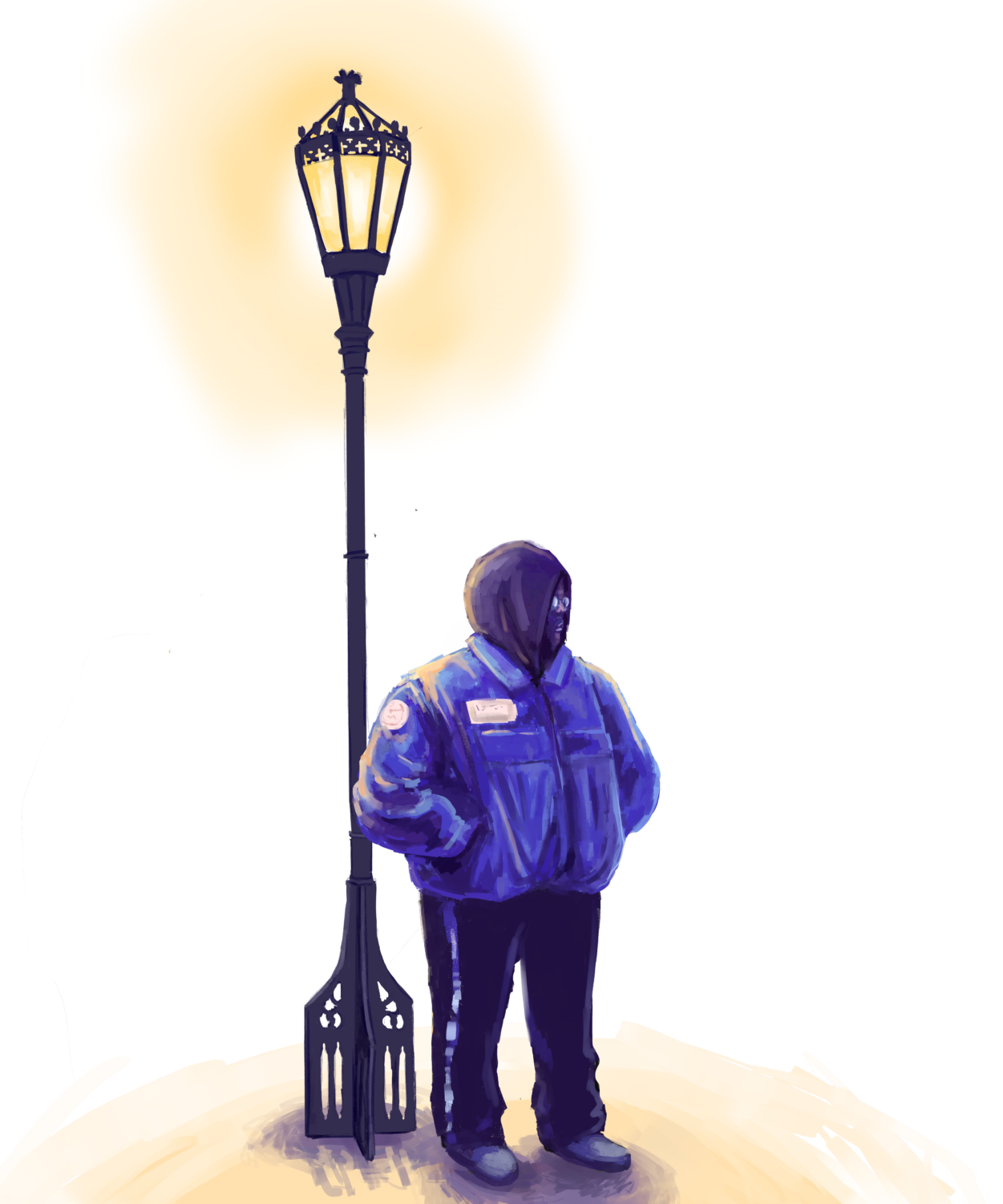
***
Damned If You Do, Damned If You Don’t
It is difficult to determine the party that is responsible, or most able to address these and other complaints. According to Sainvilus, the University’s only responsibility in its contract with Allied Universal is to determine the hours and locations for the security posts. As the contractor, Allied Universal takes care of everything else: the hiring, the staffing, any disciplinary or HR-related issues, mitigation of complaints, and negotiations with the union. Allied Universal, however, claims that security programs, including “the duties” of the officers, are customized to the needs of each client. The union, SEIU Local 1, did not comment directly regarding allegations of its unresponsiveness, citing the current contract negotiations it is undergoing with Allied Universal as its reason for being unable to answer questions.
Regardless of where the responsibility lies, the lack of outlets for security guards to openly address and resolve these frustrations has led Allied Universal security guards to believe that they are not being treated like human beings.
“You’re not human in certain places,” McNeil said. “You’re a product of the building; you shut on and you shut off when they say so. You move when they say so.”
Both McNeil and Anna also felt that their managers did not truly understand the difficulty of their job, and that Allied Universal as a company could provide more support to officers standing outdoors.
“They say, ‘Aw, it’s not bad out here,’” Anna said. “Well, how about you try standing out here in the cold, freezing your ass off…. It don’t feel too good when it’s cold, and you got hail hitting your face.”
She and other security guards have requested booths to stand in, but to no avail.
“[The managers] say, ‘Well, we are already doing so much.’”
When asked about what steps Allied Universal takes to ensure that workers are able to do their job, Samantha Thomas, a spokesperson for the company, said in a statement that the company works to ensure the safety of its employees who work outdoors at the University of Chicago. Support includes “cold weather gear; roving supervisors to relieve security professionals for breaks; warming breaks during cold weather; procedural changes to limit exposure during Wind Chill Advisories; water distribution during hot weather; and continued monitoring of weather reports to alert security professionals to take cover when needed.”
Sainvilus added that UCPD also assists with the warming breaks, and that “citizens also provide hot beverages during winter months.”
However, Anna said that it has been difficult to get Allied Universal to offer additional accommodations for employees. She and her coworkers have thought about starting a petition for Allied Universal to provide booths, but feel discouraged because of the possibility of getting fired. McNeil echoed similar concerns, stating that the difficulties she experienced communicating and working with her managers were what perpetuated many problems.
“It’s really how management treats you. Because they don’t treat you with respect. They look at you as someone who needs a job, and their favorite thing is to tell people, ‘Well, if you don’t work it, someone else needs a job, and they’ll work it.’”
McNeil acknowledges that there is truth to management’s claim. Before working the security detail, McNeil spent some time in human resources helping to hire officers. According to her, she would get hundreds of applications for every position.
Allied Universal held a hiring event in Englewood last week that was filled with hopefuls. One woman walking out of the event voiced her concern about the job. “I don’t know if I'm going to be able to stand outside for 10 hours in the cold. You get frostbite,” she said. When asked if she will still apply, she responded, “Yeah, money is money.”
McNeil believes officers are willing to tolerate difficulties because they need the money.
“You come to work every day. You have a family to take care of. You may not have a lot of education, or you have been looking for a job for three, four months…. You’re going to do whatever it takes to stay under the radar and be in this job,” McNeil said. “So many people deal with stuff that they shouldn’t have to deal with, [and] I feel like somebody needs to say something.”
McNeil believes the company operates on a culture of fear, effectively discouraging workers from speaking up, even when they have significant problems.
“One thing that you’ll find out is that people are afraid to work for AlliedBarton. They don’t open their mouths, and they don't say things that might [make them] lose their job,” McNeil said.
Beyond the culture of fear, Anna pointed out that it is difficult to pinpoint who exactly is responsible for decisions that affect working conditions.
“It’s so confusing because…first they tell us what Allied Universal’s role [is], then [they say], ‘Oh no, it’s up to the University of Chicago.’ So it’s like, ‘What’s going on?’ There has got to be something that they can do,” Anna said.
While collective bargaining is considered a traditional outlet for addressing and negotiating working conditions, the two were also frustrated with SEIU Local 1, the union that represents Allied Universal security guards.
“The union doesn’t help you,” McNeil said. “You call them, [and] they don’t know what you’re talking about. [They’ll say], ‘Well, let me look into it.’ If I’m paying you, I shouldn’t have to hound you down. We pay you to be our representative.”
Anna expressed a similar sentiment: “You are paying 50 bucks [a month]. What are you getting out of it? Like something goes wrong, and you go talk to them about the situation, and then sometimes it doesn’t get handled, or they will try to brush you off, saying, ‘Go talk to your supervisor or the manager of the supervisor.’”
Both McNeil and Anna also expressed that, from witnessing others’ experiences, contacting the union generally leads to some form of punishment.
“It’s like this unspoken thing. It’s really hard to explain. It’s not said, but you know it because everyone who has ever contacted the union…[has] been reprimanded in some type of way,” McNeil said.
“You’re damned if you do, damned if you don’t,” Anna said.
The National Labor Relations Act prohibits employers from “transferring, laying off, terminating, assigning employees more difficult work tasks, or otherwise punishing employees because they engaged in union or protected concerted activity.”
When asked about the stigma surrounding contacting the union, Allied Universal spokesperson Samantha Thomas said in an e-mail statement that “any employee with a concern or question about their post is encouraged to discuss it with their on-site manager or with their union representative.”
According to Thomas, “Allied Universal is happy to work in conjunction with the SEIU,” but that “union representation is at the discretion of the employees.”
McNeil, Anna, and every other officer we have asked did not know that they had a say in whether or not SEIU Local 1 would be the one to represent them.
“I didn’t know that you can choose your union. We were always told that this was the union for this campus so [we] basically [had] no choice,” McNeil said.
Thomas declined to comment beyond the initial statement.
***
The Community Man
Though it is largely hushed, some people have noticed the difficulties that security officers face. When Sainvilus, University spokesperson, mentioned that there were citizens who “provided hot beverages during winter months,” she was referring to people like Peter Zelchenko, a Hyde Park resident who used to take his son with him to ladle hot chocolate for the officers.
“It was hard work, walking around, biking around, driving around in a car, ladling out cocoa, but one shift of that is easier than standing outside for [10] hours,” Zelchenko said.
After doing this four or five times, he decided that something more had to be done, so he began brainstorming amenities that officers could use on an everyday basis. After consulting a few officers, he decided it would be nice for them to have chairs or stools, and cushioned pads that they could stand on.
“That will help with stress disorder on the legs…standing on concrete all day is not something you should do for your knees,” Zelchenko said.
He also wanted to provide each officer with a 32-ounce Thermos that could be filled with hot water for tea or hot cocoa.
“That would mean that they could have their Swiss Miss anytime.”
He drew up a budget and found that this entire project would cost about $20,000. His initial plan was to split this cost among four parties: the students, the community, Allied Universal, and the UCPD.
Last September, he approached then-Director of Security Services at the University of Chicago Craig Nance, UCPD Sergeant Janelle Marcellis, and the then-Director of AlliedBarton Paul Ohm, among others, about the project. According to Zelchenko, while they offered him a meeting space in the police department, they said that contributing money to the project was not possible. According to Zelchenko, Ohm cited liability issues such as the sanitation requirements for the Thermoses. Zelchenko continued to work with Ohm, Nance, and other individuals, but found that, while these parties seemed proactive during meetings, it was difficult to get follow-up traction. He does not attribute this to ill intent, but rather a general inertia that comes with bureaucracy.
Ohm did not respond to requests for comment. Marcellis said she was present in the initial meeting in more of an organizing capacity but did not remain involved and does not know about the decisions made. Nance confirmed that these items were discussed but said he could not speak to the decisions made since he is no longer in the same position at the University.
“I see four bureaucracies…that all want to do right. I don’t see a conspiracy to shirk responsibility here…. It’s a whole can of worms, and it’s hard to get it started,” Zelchenko said.
Zelchenko did say, however, that his project would be a drop in the bucket considering the University’s security budget.
“Policing at the University, it’s multimillions of dollars…. Considering the size of the budget and considering how easy it would be to just give them a Thermos, I don’t think it is a lack of will. It’s just a matter of getting them to do it.”
Zelchenko has not yet convinced them.
***
Contract Negotiations, Petitions, and Hope
Within the organization, efforts to bring about change largely depend on times when Allied Universal management and the officers are negotiating their contract. This process is currently underway, and will continue through early December of this year.
Union representatives have been going around having officers sign a petition asking for higher wages and additional weather considerations. They are also holding meetings for officers to share their grievances so they can serve as intermediaries during contract negotiations. Anna has been to two of the meetings, and she does feel that the union is trying.
“The union is fighting, but there is always the other side that will do no compromising.”
When asked if she is hopeful for what will come from the negotiations, Anna says she is not going to wait around to find out.
This has not been an easy decision. In the process of leaving the company, Anna has had to say a lot of goodbyes, and it’s made her realize how much of an impact she has been able to have on the community during her years with Allied Universal.
“[Members of the community] have told me they are going to have to take another route because I’m not going to be there, and it broke my heart. I cried because I didn’t realize how much I have changed people. I have made a difference in someone’s life. It just hurts because I love what I do; I love helping people, and it hurts my soul that I have to leave, but at the same time, I have to do what I got to do.”
Despite leaving the company, Anna hopes to be involved in bringing about change in the system for the benefit of current and future officers. She and some other security guards are talking about starting their own petition, but are afraid of the repercussions that may come from this. She believes it is important that they do so anyway, and do so united.
“We all have to come together, voice our opinions. If we voice our opinions, and go to the meetings and talk about what needs to be done, things can be changed. I know you are scared, I know everybody’s scared, but…you are human.”
***




